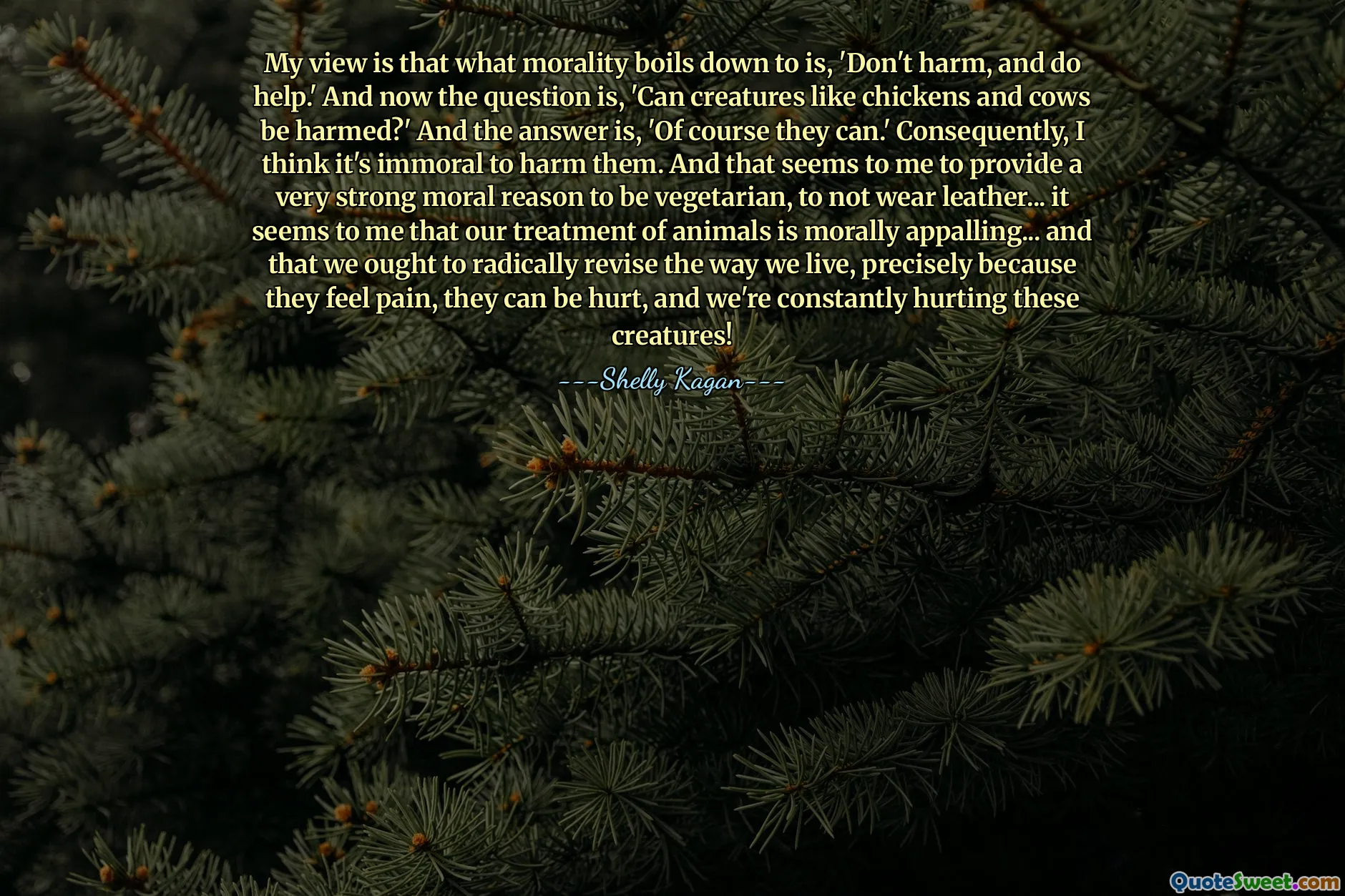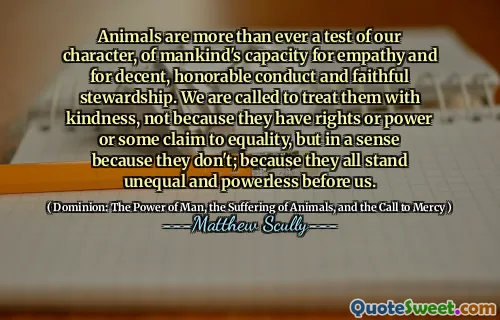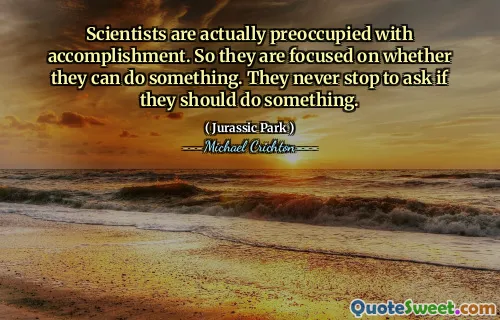
My view is that what morality boils down to is, 'Don't harm, and do help.' And now the question is, 'Can creatures like chickens and cows be harmed?' And the answer is, 'Of course they can.' Consequently, I think it's immoral to harm them. And that seems to me to provide a very strong moral reason to be vegetarian, to not wear leather... it seems to me that our treatment of animals is morally appalling... and that we ought to radically revise the way we live, precisely because they feel pain, they can be hurt, and we're constantly hurting these creatures!
This quote articulates a profoundly ethical stance rooted in the principle of minimizing harm and maximizing aid, a cornerstone of many moral philosophies. The speaker reduces morality to two essential tenets: don't harm others and actively help them. Extending this principle beyond humans, the reflection underscores that animals, specifically chickens and cows, are sentient beings capable of feeling pain and suffering. This recognition challenges common societal norms that often overlook the ethical implications of harming animals for food and materials such as leather.
The argument powerfully advocates for vegetarianism and more compassionate lifestyles, suggesting that our current treatment of animals is not only unjustifiable but morally reprehensible. It asks us to reconsider our habits, not as mere dietary choices but as profound ethical decisions with significant impact on sentient lives. The call to "radically revise the way we live" echoes a broader plea for systemic change—encouraging awareness and empathy toward all living beings, compelling us to reevaluate our consumption patterns and cultural practices.
From a broader perspective, this quote invites us to broaden the scope of our moral consideration. By acknowledging that animals can feel pain and can be harmed, it prompts the moral expansion necessary for more ethical coexistence. It confronts cognitive dissonance in how societies rationalize animal suffering and positions compassion as an imperative rather than an optional virtue. Ultimately, it challenges every individual to reflect deeply on the consequences of their choices and to align their lives more closely with empathy and justice for all creatures.







